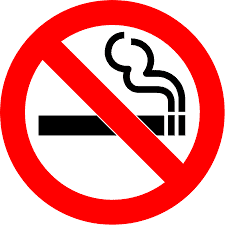By Morgan Wittman Gramann, Esq.
 Substance abuse has been an area of great concern among legislators and the public health community lately, as it should be. However, there is one substance that is getting less attention than the rest, despite the fact that it remains the leading cause of preventable death in North Carolina: tobacco. In North Carolina, electronic cigarettes (e-cigarettes) are categorized as tobacco products, and with an 888 percent increase in e-cigarette use among high schoolers since 2011, tobacco will remain a major health hazard for our state’s youth unless steps are taken to prevent and treat its use.
Substance abuse has been an area of great concern among legislators and the public health community lately, as it should be. However, there is one substance that is getting less attention than the rest, despite the fact that it remains the leading cause of preventable death in North Carolina: tobacco. In North Carolina, electronic cigarettes (e-cigarettes) are categorized as tobacco products, and with an 888 percent increase in e-cigarette use among high schoolers since 2011, tobacco will remain a major health hazard for our state’s youth unless steps are taken to prevent and treat its use.
From decades of research and tested interventions, we know how to reduce tobacco-related disease and death: strong tobacco use prevention and cessation programs, a high tobacco tax, and comprehensive tobacco-free policies. There are currently two evidence-based policies in play at the General Assembly to prevent and reduce tobacco use.
House Bill 276 and the Senate companion bill, SB 478, appropriate $17 million to resurrect North Carolina’s teen tobacco use prevention programs. Our state once had award-winning teen tobacco use prevention programs, which were immensely successful in decreasing teen tobacco use. I know, because I was one of many teens who participated in them. From 2000 to 2010, NC smoking rates among high school students fell from 26 percent to just over 19 percent. Unfortunately, funding for these programs was eliminated in 2012, and almost immediately, we saw smoking rates begin to rise, with high school smoking rates increasing almost 2 percent in just one year.
Now, with the emergence of e-cigarettes, it is even more important to fund these life-saving programs. Unfortunately, North Carolina currently ranks 45th in the country for tobacco use prevention spending, and, of the tobacco-growing states, North Carolina ranks last.
There are also efforts to increase funding for QuitlineNC, the state’s tobacco cessation hotline, to $3 million to allow QuitlineNC to offer full cessation services to every caller. Due to current funding levels and increased demand for cessation services, QuitlineNC is only able to offer partial programs to most callers and is only able to treat 14,000 users a year, or 0.93 percent of total tobacco users. These services include Quit Coaching, which is available 24/7, and can be offered with nicotine replacement therapy, as well as an evidence-based, proactive 4-call program for all callers, with a 10-call program available for pregnant and postpartum women. Due to current funding levels and increased demand for cessation services, QuitlineNC is only able to offer partial programs to most callers and is only able to treat 14,000 users a year, or 0.93 percent of total tobacco users.
Devoting funds to teen tobacco use prevention programs would help prevent young people from ever becoming tobacco users, thereby preventing them from living lives plagued by chronic disease and premature death. Additionally, providing additional funding for QuitlineNC would give current tobacco users with the tools they need to quit. Importantly, by investing in teen tobacco use prevention programs and cessation services, the General Assembly could also reduce substance abuse and improve substance abuse recovery outcomes. Smoking is associated with increased risk of substance use relapse and causes more deaths among substance abuse treatment clients than the alcohol or drug that got them into treatment. By preventing youth from ever becoming tobacco users and by helping current tobacco users quit, we can not only save the lives of would-be tobacco users, but we can improve recovery outcomes for those suffering from substance abuse disorders.
How do we pay for this? We know the solution for that, too. The state receives approximately $140 million each year from the Tobacco Master Settlement Agreement. This is the money that started coming to North Carolina in 2000 from the tobacco industry to repay the state for the money our Medicaid program spent treating smoking-related illness. These funds were once used to pay for North Carolina’s teen tobacco use prevention and cessation programs before the funding was eliminated in 2011. The General Assembly should once again use these funds for the purpose for which they were intended: to prevent tobacco-related death and disease.
Morgan Wittman Gramann, Esq. is the executive director of the NC Alliance for Health.
